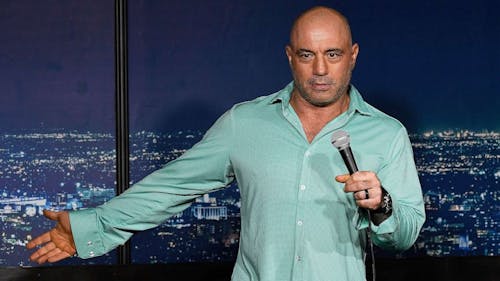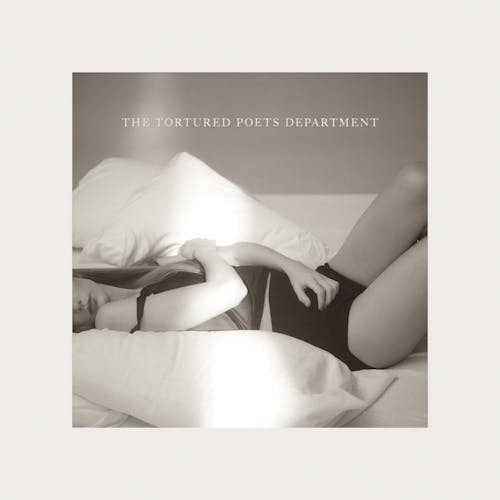Musicians removing music from Spotify does nothing to combat Joe Rogan's misinformation spread

Joe Rogan’s platform is based on misinformation — but his influence on Spotify means he seemingly doesn't have to live by the same rules that regular people do.
His broadcasting deal includes a $100 million dollar deal with Spotify which started in 2020, and they exclusively own his back catalog of podcast episodes. Based on Rogan’s outreach and popularity, it becomes evident his antics have propelled "The Joe Rogan Experience" to become the number one most popular podcast in the world.
To emphasize his notoriety, some of Rogan's most famous guests include Tesla CEO Elon Musk, whose achievements are often overshadowed by his endless controversies and faux-sense of Reddit-themed relatability, and Jordan Peterson, a Canadian psychologist who claimed on Rogan’s podcast that the models scientists use to predict climate change and its impacts are flawed and misleading.
Statements like this on such a public platform spread like wildfire, and as a public figure, Rogan has a responsibility to provide factual information to his audience.
Since Rogan is not a journalist by trade, his obligation to the public comes from his creation of what's supposed to be an honest, relatable persona instead of a journalistic obligation to provide academic, fact-checked information.
By constantly admitting that he is not an expert in many fields, Rogan should serve as more of an entertainer and less of an authority figure. But his position as a facilitator who interviews influential celebrities in their own field places him in a uniquely influential position, and people who are Rogan fanatics genuinely believe his conspiracy theories and take his word as law.
Every social media platform has faced this problem in the past five years: A popular internet celebrity who’s loved by millions for his anti-establishment views eventually receives backlash for misinformation — which has implications that the celebrity is unable to see the full effects of.
The spewer of information lives in an ivory tower of their own delusions, as his fans validate his worldview and make him feel like his perspective is valued.
Entitlement fuels ego, and Rogan’s is undoubtedly stroked as he feels as though he has to voice his opinion on any public issue. Rogan is originally a UFC court commentator and comedian by trade, so his expertise is not in public health, and he should not be treated as such.
Musicians like Joni Mitchell and Neil Young have pulled their music from Spotify in order to counter Rogan’s continued misinformation about vaccines, but the debate on how effective this form of protesting is remains to be seen. Spotify is a subscription-based service that earns money through Spotify Premium subscriptions, so their relationship with record labels is beneficial to them financially — regardless of artist cooperation.
This sense of forced activism neither responds to the problem nor offers systemic change in its absence, and it pressures smaller musicians to believe that if they do not remove their music, they are supporting Rogan by remaining complicit.
One of the only ways to truly impact a media personality’s brand is through financial backing or public pressure that affects their reputation, so a public boycott of Rogan’s content would be much more effective, as his numbers are a reflection of his popularity.
Musicians do not owe Rogan or his haters anything — they are indebted only to the creation and promotion of their own art and ideas. Creators obsess over revenue, ad money and public perception, and while Rogan is no stranger to controversy, his popularity sits as a gauge of how his content is being received.
Policing on the internet feels like a fruitless task, as people on the internet continue to believe misinformation like Rogan's, despite the mountains of evidence that disprove their cognitive bias.
While musicians removing their songs from Spotify creates bad publicity for the streaming giant and generates publicity for the musician, it provides no lasting damage to Joe Rogan or his reputation.
Musicians facing the stream-loss repercussions of one man’s rhetoric feels unjust and irrelevant to the issue at hand — to stop the spread of misinformation and the popularity of those who create it, we must instead prevent people from believing it in the first place.



